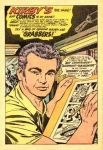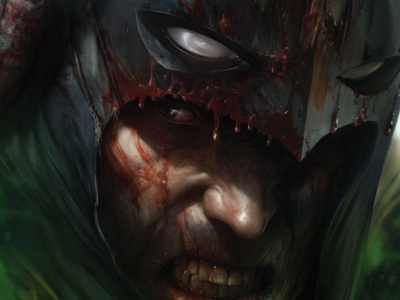
On the editorial page of the New York Times’ new “Sunday Review” (formerly “The Week in Review”) section right next to the paper’s unsigned editorials, is an essay entitled “ Marvel Superheroes and the Fathers of Invention” by Brent Staples, who is a member of the NYT editorial board. Staples begins by describing the exploitative nature of the early comic book publishing industry, which began as “the province of con men who stripped artists of their creations.” He then notes that the artists “who were paid virtually nothing for work on characters that are now worth billions at the movies are nearly all dead,” but the heirs of those artists are now suing the publishers “thorough a federal copyright law that “practically invites descendants to sue.”
The lawsuits filed against DC by the Superman heirs and against Marvel by Kirby’s descendants are forcing modern entertainment conglomerates to “reckon with the amoral practices of the old comics workshops,” and compelling modern courts to decide “how to credit creative works produced at a time when even the most talented artists were treated as serfs.”
In his editorial, Staples concentrates on the case of Jack Kirby describing the looser Marvel method of comic book creation that evolved under the editorial direction of Stan Lee in the early 1960s. He notes that court documents indicate that in 1957 Marvel’s predecessor fired almost all of its art staff, which essentially made Kirby an independent contractor. He also notes Stan Lee’s wildly varying accounts of Kirby’s role in the creation of the Marvel Silver Age superheroes. In a deposition relating to the 2009 case filed by the Kirby heirs, “Mr. Lee seemed to suggest that Mr. Kirby was little more than a talented foot soldier who followed the whims of his boss.”
But in earlier interviews including one done in 1968 and later reprinted in The Comics Journal Lee is singing a very different tune, and Staples quotes the conclusion of Earl Wells’ 1995 essay “Once and For All Who Was the Author of Marvel” that the record “yields as much evidence that Kirby was the author as it does that Lee was—much of it in Lee’s own words!”
Staples concedes that it is up to the courts to decide the legal question, but weighed in anyway concluding that “there is no doubt that the King of Comics contributed far more to Marvel—and to popular culture—than he received credit for.”







